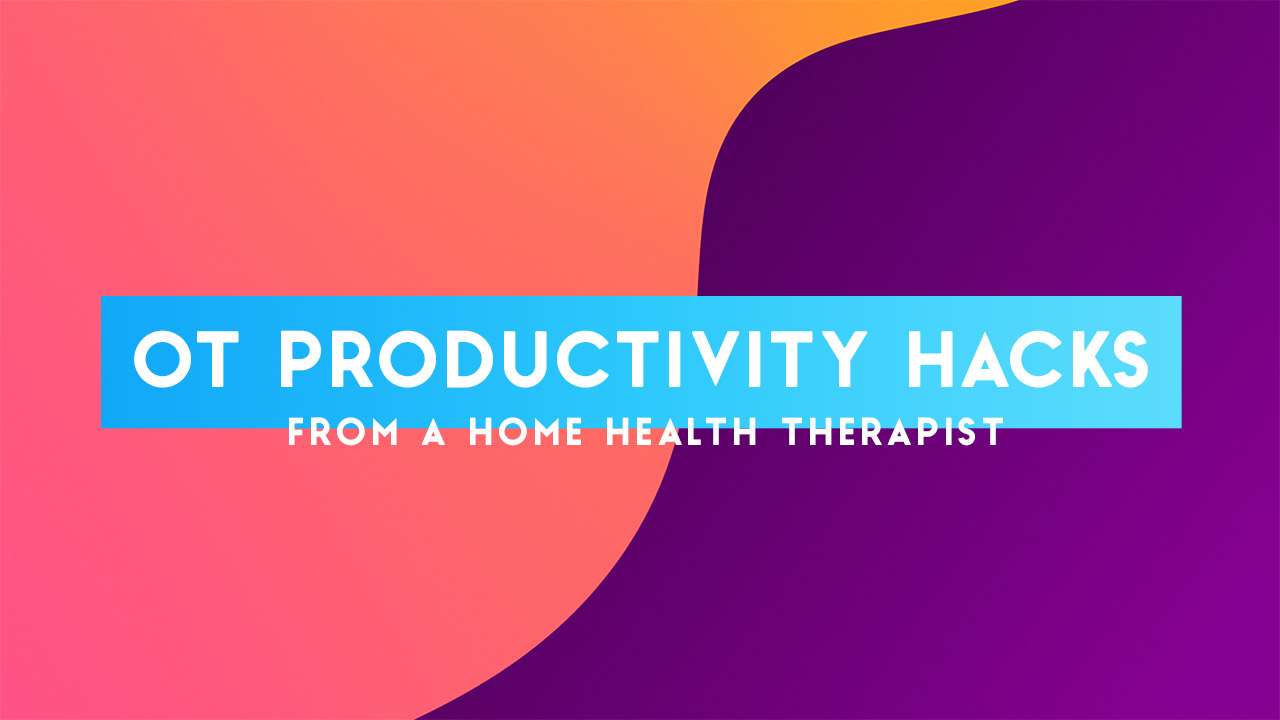
Share on Pinterest
Tom Werner/GettyImages
Stress is a normal part of life — good stress and bad stress. With bad stress, you have both physical and emotional reactions to certain triggers that can cause you to worry and feel on edge. Stress can fluctuate at work or at home, while challenging situations and other changes in your life can trigger it, too.
If you’re curious about how you can manage stress through therapy, read on to learn more about what types of therapy and therapists can help.
What therapies work for stress?
While stress itself is a normal part of life, recurring stress that interferes with your daily activities and overall well-being is not. Stress can manifest itself in different ways, including excessive worrying, inability to sleep at night, and body aches.
Stress can take its toll, but therapy can help you manage it better. Some types of therapy may even equip you with strategies to cope with future stress. Below are the most commonly used therapies for stress and related mental health conditions.
Cognitive behavioral therapy (CBT) for short-term help
CBT is perhaps one of the most common types of therapy available, as it addresses your thought patterns and behaviors. Your therapist will help you identify your stressors, and help you come up with healthier responses to reduce the impact of your triggers.
CBT may be used on either a short-term or long-term basis. This can make it suitable for helping to treat chronic mental health conditions, as well as helping you get through traumatic events and other causes of acute stress.
You may benefit from CBT if you’re concerned about:
- anxiety
- depression
- bipolar disorder
- sleep disorders, such as insomnia
- phobias
- obsessive-compulsive disorder (OCD)
Psychodynamic therapy
Like CBT, psychodynamic therapy aims to help you identify thought patterns that may dictate behavioral responses. Psychodynamic therapy, however, is used on a more long-term basis. It may be best suited for stress caused by long-standing issues that you have been dealing with, which are intertwined with other mental health conditions, such as anxiety and depression.
Behavioral therapy
Behavioral therapy is similar to CBT with its focus on changes in behavior. But unlike CBT, behavioral therapy is more focused on your actions, rather than your thoughts.
According to this type of therapy, your actions are dictated by previous behaviors. By changing your behavioral responses to stress now, you can create new patterns and possibly avoid further stress.
Behavioral therapy tends to work best for long-term triggers of stress, including traumatic events, as well as conditions such as anxiety, phobias, and attention-deficit hyperactivity disorder (ADHD).
Exposure therapy
Exposure therapy is a technique traditionally used to treat phobias, PTSD, and anxiety disorders. You might benefit from this type of therapy if you have a mental health condition that causes you to avoid certain situations, objects, people, and places.
This type of therapy may also help address chronic stress if you practice avoidance in an effort to avoid more stress. Unfortunately, such avoidance can make stress and anxiety-related disorders worse by making you feel even more uneasy.
Exposure therapy works by allowing your therapist to help gradually expose you to the triggers that you intentionally avoid. The idea is that, over time, you will become accustomed to these fears and become less stressed about them.
Group therapy
In some cases, group therapy may be an option if you’re dealing with an extremely stressful event. Examples include a natural disaster, child loss, divorce, and more. A trained therapist leads sessions, and you may find the group setting allows you to feel empowered and less alone.
What kind of therapist is best for stress?
Trained psychologists or a psychotherapists are generally the best type of mental health professionals for stress-related therapies. Their mission is to help you identify triggers of stress while collaboratively developing a plan with you to manage them. Psychotherapists are also referred to as “talk therapists.”
When looking for a therapist, you can ask a prospective professional what modalities they specialize in. For example, many talk therapists use CBT, while others might specialize in psychodynamic therapy. Also, some psychotherapists specialize in stress and related mental health conditions such as anxiety.
While psychologists and psychotherapists tend to be the most helpful in assisting their clients with behavioral changes in response to stress, some situations may warrant other types of mental health professionals who also use talk therapy techniques. These include:
- Psychiatrists, who can also administer mental health medications and have medical training
- Group counselor, who specializes in working with a small group of people with similar struggles
- Play therapists for younger children
- School counselors, who may address stress in school-aged children, as well as college students
No matter which professional you seek stress therapies from, be sure that they are licensed in your state and have the relevant education and experience to help you.
How to get help
If you feel that stress is starting to interfere with your daily activities, it’s time to reach out for help. The American Psychological Association is a good place to start your online search. Check out their free psychologist locator to find therapists in your state. You can also ask your family doctor for recommendations.
While many insurance companies cover mental health services, it’s important to check with your provider regarding in-network therapists. You’ll also want to check out information regarding co-payments and other fees.
There are affordable therapy options no matter your insurance coverage and budget.
Some therapists don’t take medical insurance due to privacy concerns. You may check to see if they offer sliding scale fees to help off-set your costs. Local clinics, blogs, therapy apps, and virtual sessions may also be less expensive.
It’s important to schedule an initial consultation to gauge your comfort level with your therapist. You may find that it takes a few different therapists until you’ve found the right fit.
What else helps with stress?
Aside from therapy, there are other steps you can take to reduce stress in your everyday life right now. You can start with the following:
- Exercise regularly. Research shows that even walking for 30 minutes each day can decrease stress and boost your overall mood.
- Schedule regular relaxation intervals. Do something that relaxes you for at least several minutes a day. Just some ideas include taking a warm bath, gentle yoga stretches, deep breathing exercises, or reading a book.
- Prevent social isolation. While seeing friends and family for in-person activities can help, even making phone calls or talking virtually can keep you socially connected and reduce your stress.
- Reassess your priorities. Focus on daily tasks without worrying too much over what you can’t get done. Also, say “no” to unnecessary tasks, and delegate extra work when you start to feel overwhelmed.
The above techniques can work for both chronic and acute forms of stress, and they can complement any therapies you decide to try. If you’re struggling with ongoing stress, see a mental health professional for advice.
The takeaway
Occasional stress isn’t necessarily a cause for concern if you are able to manage it on your own. But if stress interferes with your life on a regular basis and you’re feeling overwhelmed, it may be time to seek help.
Left untreated, ongoing (chronic) stress may contribute to (or worsen) certain mental health conditions, including anxiety, post-traumatic stress disorder (PTSD), and depression.
Unmanaged stress can also have other consequences to your health. These may include digestive ailments, high blood pressure (hypertension), and sleep disorders. Long-term stress is also linked to metabolic disorders.
Therapy can be an invaluable tool for stress, whether you’re going through an unusually tough time or if you’ve been struggling with chronic stress. It can even address stress related to mental health conditions or chronic illnesses.

Is it Time to See a Therapist? Probably!
It’s time to see a therapist. Psychotherapy, talk or talking therapy, counseling, or simply therapy — no matter the name it’s known by, mental health counseling can benefit people struggling with emotional difficulties, life challenges, and mental health concerns.
Why Therapy?
Therapy can help improve symptoms of many mental health conditions. In therapy, people can learn to cope with symptoms that may not respond to treatment right away. Research shows the benefits of therapy last longer than medication alone. Medication can reduce some symptoms of mental health conditions, but therapy teaches people skills to address many symptoms on their own. These skills last after therapy ends, and symptoms may continue to improve with thereapist touch bases.
How Common are Mental Health Issues?
Mental health issues are common. Recent statistics from the National Alliance on Mental Health show 1 out of every 5 American adults lives with a mental health condition, while 1 in 20 adults experience a serious mental health condition each year. 1 in 6 U.S. youth age 6-17 experience a mental health disorder.
But only about 40% of people with mental health issues get help. Untreated mental health issues often get worse and may have other negative effects. They could also lead to:
- Inability to work or go to school
- Difficulty in relationships or taking care of children
- Increased risk of health issues
- Hospitalization
- Suicide
Suicide is the second leading cause of death for people in the United States between the ages of 10 and 34. About 90% of people who die by suicide in the U.S. lived with a mental health condition.
The best option for anyone contemplating suicide is to get immediate help is reaching out to a suicide helpline through phone, text message, or online chat. You may be encouraged to call or visit the nearest emergency room. A therapist can help support you going forward, once you are no longer in crisis.
Do I “Need” Therapy?
It may be difficult to watch a loved one deal with mental health challenges, but telling someone that they should go to therapy or that they need therapy can be stigmatizing or confrontational.
Encouraging someone you care about to look into possible therapy options, even offering to review potential therapists with them, is generally a good way to show support. People who feel forced into therapy may feel resistant and find it harder to put in the work needed to make change.
When any type of mental health or emotional concern affects daily life and function, therapy may be recommended. Therapy can help you learn about what you’re feeling, why you might be feeling it, and how to cope.
Therapy also offers a safe place to talk through life challenges such as breakups, grief, parenting difficulties, COVID impacts, or family struggles. For example, couples counseling can help you and your partner work through relationship troubles and learn new ways of relating to each other. Note that crisis resources, not couples counseling, are typically recommended for abusive relationships.
The GoodTherapy registry might be helpful to you. We have thousands of therapists listed with us who would love to walk with you on your journey. Find the support you need today!
When Should I Consider Therapy?
It may take some consideration before you decide you’re ready for therapy. You might want to wait and see if time, lifestyle changes, or the support of friends and family improves whatever you’re struggling with.
The American Psychological Association suggests you consider a time to see a therapist when something causes distress and interferes with some part of life, particularly when:
- Thinking about or coping with the issue takes up at least an hour each day
- The issue causes embarrassment or makes you want to avoid others
- The issue has caused your quality of life to decrease
- The issue has negatively affected school, work, or relationships
- You’ve made changes in your life or developed habits to cope with the issue
If you experience any of the following emotions or feelings to the extent that they interfere with life, therapy may help you reduce their effects. It’s especially important to consider it’s time to see a therapist if you feel controlled by symptoms or if they could cause harm to yourself or others.
Possible signs you need to see a therapist
- Overwhelmed. You might feel like you have too many things to do or too many issues to cope with. You might feel like you can’t rest or even breathe. Stress and being overwhelmed can lead to serious physical health concerns.
- Fatigue. This physical symptom often results from or accompanies mental health issues. It can indicate depression. Fatigue can cause you to sleep more than usual or have trouble getting out of bed in the morning.
- Disproportionate rage, anger, or resentment. Everyone feels anger at times. Even passing rage isn’t necessarily harmful. Seeking support to deal with these feelings may be a good idea when they don’t pass, are extreme compared to the situation, or if they lead you to take violent or potentially harmful actions.
- Agoraphobia. People with agoraphobia fear being in places where they might experience panic attacks or become trapped. Some people may become unable to leave their houses.
- Anxious or intrusive thoughts. It’s normal to worry about things from time to time, but when worry takes up a significant part of your day or causes physical symptoms, therapy can help you deal with it.
- Apathy. Losing interest in usual activities, the world around you, or life in general can indicate mental health issues like depression or anxiety.
- Hopelessness. Losing hope or motivation, or feeling as if you have no future, can indicate depression or another mental health condition. Feeling hopeless from time to time, especially after a period of difficulty, isn’t uncommon. But when it persists, it may lead to thoughts of suicide.
- Social withdrawal. Many people feel better when they’re able to spend at least some time alone. Introverted people may need even more time alone than others. But if you feel distressed around others or fear being with other people, therapy can help you understand and deal with these feelings.
What If I’ve Already Tried Therapy and It Didn’t Work?
Sometimes therapy doesn’t “work” right away. Even in an ideal therapy situation, it can take time for symptoms to improve. – months or years. Going to therapy and seeing no change may cause frustration. Perhaps you haven’t found the right therapist, so it’s worth it to continue your search for help. If you’re still experiencing any of the symptoms above, therapy should still be an option. Don’t stop your quest to improve your mental health.
It can help to look for a therapist who treats what you’re experiencing. If you don’t have a diagnosis, you can talk to potential therapists about your symptoms. Most therapists will let you know if they’re able to treat your concern. If they can’t, they may be able to recommend someone who can.
Keep in mind different approaches may be better for different issues. If you didn’t feel heard in your previous therapy, or if your symptoms have changed since your last therapy session, a different therapist might be exactly what you to move forward.
What are the Benefits to Seeking Therapy?
If you’re considering therapy, you may be thinking about the possible drawbacks. Cost might be a concern for you. You might also be aware that therapy is often difficult. Trauma or other painful events from the past can be frightening to remember and discuss with someone. Working through challenges isn’t easy, and therapy isn’t always a quick fix. Make sure that when you’re ready to see a therapist that you can be honest with yourself and with your them.
But if you’re willing to do the work, therapy can be rewarding. It’s a safe, judgment-free space where you can share anything, with a trained professional who is there to help.
Here are a few benefits of therapy:
- You’ll learn more about yourself. Therapists listen to your story and help you make connections. They might offer guidance or recommendations if you feel lost. Therapy can empower you to take action on your own.
- Therapy can help you achieve your goals. If you aren’t sure of what your goals are, therapy can help you clarify them and set realistic steps to meet them.
- Therapy can help you have more fulfilling relationships. Whether you’re single or in a relationship, therapy can help you address difficulties relating to others, such as insecurity in relationships or difficulty trusting your partners.
- You’re more likely to have better health. Research supports a link between mind and body wellness. Untreated mental health issues can impact physical wellness. On the other hand, people in good emotional health may be more able to deal with physical health issues that arise.
- Therapy can lead to improvement in all areas of life. If you feel like something is holding you back from living life as you envision it, therapy can help you address this. When you aren’t sure what’s keeping you from making change, therapy can help you discover the answer.
Even if you aren’t sure you want to commit to therapy, many therapists offer a free first session or phone consultation to talk through what you’re dealing with. Based on your symptoms, they might encourage you to get help. Begin your search for a therapist today!
If you believe you may need help beyond or in addition to a therapist, GoodTherapy Recovery Treatment Centers provide additional options to help beat addictions.
[Original article submitted by Crystal Raypol]
© Copyright 2022 GoodTherapy.org. All rights reserved.
The preceding article was solely written by the author named above. Any views and opinions expressed are not necessarily shared by GoodTherapy.org. Questions or concerns about the preceding article can be directed to the author or posted as a comment below.




